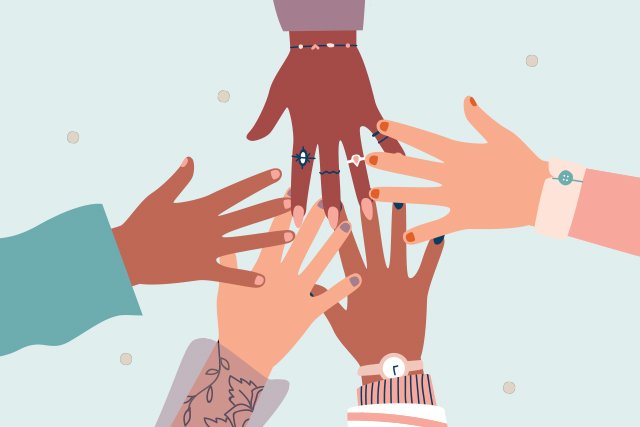Health & Fitness
Using AHCCCS to Get Treatment Help as an Unhoused Person in Arizona

Navigating the healthcare system can feel overwhelming under the best of circumstances. But for individuals experiencing homelessness in Arizona, especially those struggling with mental health challenges or substance use, it can feel nearly impossible.
The good news is that using AHCCCS to get treatment help as an unhoused person in Arizona is not only possible—it’s a vital lifeline.
AHCCCS (Arizona Health Care Cost Containment System) offers behavioral health services, addiction treatment, and mental health support to eligible residents, including those without stable housing.
In this post for Savvy Dispatches, we’ll break down how it works, who qualifies, how to apply even without an address, and what kinds of help are available to make recovery feel possible—even on the hardest days.
What Is AHCCCS and Who Can Use It?
AHCCCS is Arizona’s Medicaid program. It provides free or low-cost healthcare coverage to individuals who meet income and residency requirements. That includes many people experiencing homelessness. If you are unhoused and dealing with addiction, depression, anxiety, trauma, or other behavioral health challenges, AHCCCS can be your gateway to care—without needing insurance, savings, or a permanent home.
Eligibility is largely based on income. If you’re single and making less than around $20,000 per year (or have no income), you’ll likely qualify. And yes, AHCCCS can be used even if you don’t have an ID, a mailing address, or a fixed place to stay. There are case managers and outreach workers across the state trained to help unhoused individuals complete applications, verify eligibility, and connect with services quickly.
Can You Get Treatment Without a Home Address?
One of the biggest misconceptions is that you need a permanent address to apply for AHCCCS. That’s not true. The system is designed to support people who are living in shelters, on the streets, in encampments, or couch surfing.
You can use a shelter, community center, or outreach program as your mailing address. Many organizations across Arizona—especially in Maricopa County, Tucson, and Flagstaff—have navigators who help unhoused individuals complete their AHCCCS applications and can offer a stable mailing address to receive important documents.
These navigators are trained to help you provide “reasonable proof” of your living situation, such as a letter from a shelter staff member or caseworker.
What Services Can You Access Through AHCCCS?
Once enrolled, AHCCCS opens the door to a wide range of treatment services designed specifically to support people facing homelessness and behavioral health needs. These include:
Mental Health Services
AHCCCS covers individual therapy, group therapy, psychiatric evaluations, medication management, and peer support. Many providers offer trauma-informed care, especially helpful if you’ve experienced violence, abuse, or PTSD while living unhoused.
Substance Use Treatment
Whether you’re dealing with alcohol, meth, opioids, or other substance use issues, AHCCCS covers detox, inpatient rehab, outpatient therapy, and medication-assisted treatment (MAT) like Suboxone or methadone.
If you’re struggling with cravings or withdrawals and want to get help for addiction when living on the streets, AHCCCS can connect you to compassionate care that meets you where you are.
Crisis Services and Case Management
You don’t need to wait for a crisis to get help, but if you are in one, AHCCCS providers offer 24/7 mobile crisis teams that can respond directly to your location. Once enrolled, case managers help with treatment planning, transportation, and access to housing programs. These services aren’t just for people already in recovery—they’re there to support you at every stage of your journey.
Housing Support
While AHCCCS doesn’t directly provide housing, it partners with programs that offer supportive housing for people with behavioral health needs. Case managers can help you apply for housing vouchers, transitional housing, or sober living environments once you’re stabilized in treatment.
How to Apply for AHCCCS as an Unhoused Individual
Applying for AHCCCS while unhoused may feel daunting, but it doesn’t have to be. Here’s a step-by-step guide to simplify the process:
Step 1: Gather What You Can
Even if you don’t have an ID or documentation, don’t let that stop you. Many providers will help you obtain the needed documents or write verification letters to confirm your situation. Bring any of the following if you have them:
- Any form of ID (state ID, jail ID, shelter card)
- Social Security Number (or just the number if you know it)
- Proof of income (or lack of income)
- Shelter verification letter
Step 2: Visit a Community Health Center or Outreach Provider
Places like Circle the City, Native American Connections, Community Bridges, and TERROS Health all offer AHCCCS enrollment assistance. These organizations work directly with unhoused people every day and know how to navigate the system efficiently.
Step 3: Apply Online or With Help
You can apply online at healthearizonaplus.gov, but if you don’t have access to a phone or internet, in-person help is usually better. Caseworkers can walk you through the forms and follow up on your application to make sure you get approved.
Step 4: Choose a Health Plan and Provider
Once enrolled, you’ll choose from one of several AHCCCS health plans (like Mercy Care or Banner University). These plans include behavioral health services. You can then be referred to providers that offer detox, rehab, therapy, and case management.
What If You’re Using AHCCCS for Substance Use Recovery?
If you’re struggling with substance use and living without shelter, using AHCCCS to get treatment help as an unhoused person in Arizona gives you access to both detox and longer-term recovery care. Whether you’re actively using or ready to stop, you can connect with harm reduction, peer support, and medically supervised detox services.
Programs across Arizona accept AHCCCS for full continuum care—including a top Scottsdale alcohol detox and treatment center that provides trauma-informed support and transitional planning for life after rehab.
Even if you’ve tried before and relapsed, you’re never disqualified from getting another chance. AHCCCS plans cover repeated treatment episodes because recovery is not one-size-fits-all.
Barriers to Care—and How to Overcome Them
There are real barriers when seeking treatment while unhoused—transportation, stigma, fear of judgment, and lack of information being among the biggest. Here’s how AHCCCS and community partners are addressing those challenges:
Lack of Transportation
Most behavioral health providers offer bus passes, ride shares, or mobile outreach that can bring you to appointments or come to you. Case managers also help coordinate transportation for detox, medical visits, or court dates.
Fear of Being Judged
Trauma-informed providers are trained to treat unhoused individuals with dignity. Many programs employ peer support specialists—people with lived experience who’ve been where you are and now help others walk the same path.
Not Knowing Where to Start
You don’t have to figure this out alone. Just walking into a clinic or shelter and saying “I need help” is enough to start the process. Staff will guide you through every step, from enrolling in AHCCCS to setting up your first therapy or treatment appointment.
Mental Health and Substance Use at the Same Time
Many people living unhoused are dealing with both mental health issues and substance use. AHCCCS supports integrated treatment, meaning you can get help for both at once. No one is turned away for being “too complex” or “not ready.”
How to Stay in Treatment When You’re Unhoused
Staying engaged in treatment without a stable home is hard—but not impossible. Many providers offer flexible appointments, mobile outreach, phone check-ins, and drop-in clinics. If you miss a session, you’re not “kicked out”—you’re welcomed back.
The system is designed to meet you where you are, not punish you for being in survival mode. Case managers can also help you stabilize your life with steps like getting an ID, accessing food and hygiene services, or connecting to housing resources.
Real Hope, Real Help: AHCCCS Is a Lifeline
For thousands of Arizonans living without homes, AHCCCS is more than just insurance—it’s a pathway to healing, hope, and stability. Whether you’re sleeping in a park, staying at a shelter, or riding out another night in survival mode, you have the right to care. You deserve it. And it’s available.
Using AHCCCS to get treatment help as an unhoused person in Arizona can be the first step toward a different future—one where you’re not alone, not judged, and not forgotten. Providers across the state are ready to support your healing, at your pace, on your terms.
Health & Fitness
Daily Hygiene Habits Every Smoker Should Incorporate

Want to keep your mouth and body as clean as possible while you smoke?
Smoking takes a serious toll on your hygiene. The reality is that 80% of smokers experience bad breath compared to non-smokers. But here’s the thing…
You don’t have to let smoking completely destroy your personal hygiene.
There are specific daily habits that can help minimize the impact smoking has on your breath, teeth, skin, and overall cleanliness.
What you’ll discover:
- Why Smokers Face Unique Hygiene Challenges
- Essential Daily Oral Care for Smokers
- Body Hygiene Tips That Actually Work
- Advanced Hygiene Strategies for Heavy Smokers
Why Smokers Face Unique Hygiene Challenges
Here’s something most people don’t realize…
Smoking doesn’t just affect your lungs. It creates hygiene problems throughout your entire body that non-smokers simply don’t have to deal with.
Here’s what’s really happening:
Maintaining your hygiene as a smoker becomes exponentially harder because tobacco smoke contains over 7,000 chemicals. These chemicals don’t just stay in your lungs – they get absorbed into your bloodstream and come out through your skin, breath, and saliva.
And here’s the kicker…
Smokers are twice as likely to develop gum disease compared to non-smokers. This creates a domino effect of hygiene issues that compound over time.
The nicotine in tobacco reduces blood flow to your gums and skin. Less blood flow means your body can’t fight bacteria as effectively. It also means your healing response is compromised.
But that’s not all.
Smoking affects your saliva production. You produce less saliva, which is your mouth’s natural cleaning system. Without enough saliva, bacteria build up faster, plaque forms quicker, and your breath gets worse.
Different types of smoking products create different hygiene challenges too. Whether you prefer Canadian cigarette brands or other tobacco products, each one deposits tar and chemicals on your teeth, tongue, and inside your mouth.
The bottom line?
You’re fighting an uphill battle when it comes to hygiene. But with the right daily habits, you can minimize the damage and stay as clean as possible.
Essential Daily Oral Care for Smokers
Your mouth takes the biggest hit from smoking. Here’s how to fight back…
Brush More Than Twice Daily
Standard advice tells you to brush twice a day. As a smoker, that’s not enough. You should brush after every time you smoke, or at least three times per day.
Use a fluoride toothpaste and brush for at least two minutes each time. Pay special attention to your gum line where bacteria love to hide.
Floss Like Your Teeth Depend On It
Here’s something that might surprise you…
29% of older adults who smoke have lost all their teeth compared to just 12% of those who never smoked. Daily flossing helps prevent this outcome.
Floss at least once daily, but ideally after each smoking session. Smoking creates more plaque buildup, so you need to remove it before it hardens into tartar.
Use Antibacterial Mouthwash
Regular mouthwash isn’t strong enough for smokers. You need an antibacterial formula that can kill the extra bacteria smoking introduces to your mouth.
Rinse for 30 seconds after brushing and after smoking when possible. This helps neutralize the acidic environment smoking creates in your mouth.
Don’t Forget Your Tongue
Most smokers ignore their tongue. Big mistake.
Your tongue harbors bacteria and absorbs smoke particles. Use a tongue scraper or brush your tongue thoroughly during each brushing session.
Body Hygiene Tips That Actually Work
Smoking affects more than just your mouth. Let’s tackle the whole body…
Shower Immediately After Heavy Smoking
Smoke particles stick to your skin and hair. If you’ve been chain smoking or spent time in a heavily smoky environment, shower as soon as possible.
Use an exfoliating body wash to remove the film of chemicals and tar that accumulates on your skin. Pay special attention to your hands and face.
Wash Your Hands Obsessively
Your fingers absorb nicotine and tar every time you hold a cigarette. This creates a persistent odor that regular soap can’t eliminate.
Use antibacterial soap and scrub under your nails. Some smokers find that rubbing a small amount of white toothpaste on their fingers helps remove stubborn odors.
Change Your Clothes More Frequently
Smoke clings to fabric fibers. What smells fine to you might be offensive to others because smoking dulls your sense of smell.
Change your clothes daily at minimum. If you’re a heavy smoker, consider changing shirts midway through the day.
Use Strong Deodorant and Antiperspirant
Smoking affects your sweat. The nicotine changes how your sweat smells, often making it more pungent.
Apply a strong antiperspirant before bed (it works better on dry skin) and use deodorant in the morning. Reapply throughout the day if needed.
Advanced Hygiene Strategies for Heavy Smokers
If you smoke more than a pack a day, standard hygiene practices won’t cut it…
Invest in Professional Dental Cleanings
Heavy smokers should see a dental hygienist every three to four months instead of the standard six months. The extra buildup of tar and plaque requires professional removal.
Some dentists offer special “smoker’s cleanings” that use stronger tools and techniques to remove stubborn stains and buildup.
Use Specialized Smoker’s Toothpaste
Regular toothpaste isn’t formulated for the level of staining and buildup smokers experience. Smoker’s toothpastes contain stronger abrasives and whitening agents.
Just remember – these toothpastes are more abrasive, so don’t overuse them. Alternate with regular fluoride toothpaste.
Consider Oil Pulling
This ancient practice involves swishing oil (usually coconut oil) in your mouth for 10-20 minutes. It helps remove bacteria and toxins that regular brushing misses.
Many heavy smokers find oil pulling helps reduce the persistent bad taste of smoking leaves in their mouth.
Deep Clean Your Living Space
Your environment affects your personal hygiene. Smoke residue on walls, furniture, and carpets constantly recontaminates your body and clothes.
Use TSP (trisodium phosphate) cleaner on walls and hard surfaces. Replace filters in your HVAC system monthly. Consider an air purifier with a HEPA filter.
Stay Extra Hydrated
Smoking dehydrates you, which makes all hygiene problems worse. Drink at least 8-10 glasses of water daily.
Proper hydration helps your body flush toxins and maintains saliva production, which is crucial for oral hygiene.
Time to Take Action
Maintaining proper hygiene as a smoker requires more effort than most people realize. The chemicals in tobacco create persistent odors and health issues that standard hygiene practices can’t fully address.
But here’s the truth…
The habits outlined above can dramatically improve how you look, smell, and feel. They won’t eliminate all the hygiene challenges smoking creates, but they’ll minimize them significantly.
Start with the oral care basics – brush after every smoke, floss daily, use strong mouthwash. Then work your way up to the advanced strategies if you’re a heavy smoker.
Your hygiene affects how others perceive you and how confident you feel. Don’t let smoking rob you of that confidence.
Remember, the best solution for hygiene problems caused by smoking is quitting altogether. But if you’re not ready for that step, these daily habits will help you stay as clean and fresh as possible.
Take action today. Your mouth, your body, and everyone around you will notice the difference.
Health & Fitness
Exploring the Future of Mental Health Support and Treatment

In 2025, mental health is no longer on the fringes of healthcare—it is a central concern for individuals, families, and professionals alike. The world has gradually begun to recognize the significant impact that emotional well-being has on physical health, relationships, work performance, and quality of life. As stressors like economic uncertainty, social disconnection, and global events continue to affect populations, mental health treatment is evolving to meet these complex needs with more empathy, innovation, and precision.
One of the most important shifts in this evolving landscape is the move away from generalized treatment models. No two people experience mental health challenges in the same way. Whether it’s anxiety, depression, trauma, or a combination of conditions, recovery demands a nuanced and highly individualized approach.
Why Mental Health Care Is Evolving
Traditional mental health treatment models served their purpose in the past, but they are often limited in scope. In previous decades, treatment typically involved medication and standard psychotherapy, with little regard for factors like lifestyle, environment, or co-occurring disorders. Today, we understand that mental health is influenced by a wide range of elements—from genetics and brain chemistry to social support and physical health.
Modern treatment recognizes these variables and has begun incorporating multiple dimensions into care, including holistic wellness, digital therapy tools, trauma-informed practices, and personalized recovery plans. The future of mental health support is comprehensive, inclusive, and adaptable.
Moreover, there is a growing effort to make mental health services more accessible. Stigma around emotional distress is slowly breaking down, allowing more people to openly seek support without shame. Campaigns promoting mental wellness are visible across schools, workplaces, and social platforms. Government and private organizations alike are investing in behavioral health programs to reach underserved communities.
Personalization in Anxiety Treatment
Among the most common mental health conditions today, anxiety disorders affect millions of people globally. What makes anxiety especially challenging is that it manifests differently in each individual. Some may experience physical symptoms like heart palpitations or fatigue, while others struggle with obsessive thoughts or social withdrawal. Because of this variability, future-focused care providers are creating specialized programs that address the unique needs of each person.
Rather than offering a generalized solution, many treatment centers are designing interventions based on diagnostic evaluations, lifestyle assessments, and even genetic markers. Therapy techniques such as cognitive behavioral therapy (CBT), exposure therapy, and mindfulness practices are chosen based on what resonates best with each client.
For those seeking expert care in this space, a highly structured anxiety treatment program can provide tailored support. These programs integrate evidence-based therapies with holistic care, offering a safe environment where individuals can learn to manage triggers, regulate emotions, and rebuild daily functionality. Programs like these emphasize that anxiety is treatable with the right tools, education, and guidance.
Technology as a Therapeutic Tool
One of the most transformative forces in modern mental health care is technology. Innovations such as mobile mental health apps, online therapy platforms, artificial intelligence–driven mental health bots, and wearable devices are bridging gaps in access and offering ongoing support between in-person sessions.
Teletherapy, in particular, has democratized mental health care. For people living in rural areas or for those who feel overwhelmed by the idea of visiting a therapist’s office, virtual sessions provide a discreet, flexible option. They also allow therapists to stay connected with clients more regularly, ensuring consistent progress.
Additionally, tools like journaling apps, guided meditation platforms, and AI mood trackers empower users to manage their mental health proactively. These innovations don’t replace professional treatment but act as effective complements, giving people more control over their emotional well-being.
The Importance of Addressing Depression Holistically
Just as anxiety treatment has become more individualized, depression treatment is also evolving to reflect the diverse ways people experience and recover from this condition. Depression is not just a matter of feeling sad or unmotivated—it can impact sleep, appetite, relationships, physical health, and even cognitive functioning.
A future-oriented approach to depression includes various therapeutic techniques, from psychodynamic therapy and interpersonal therapy to creative therapies like art or music. Some programs also incorporate physical wellness strategies, recognizing the link between body and mind. Exercise routines, nutrition plans, and sleep hygiene education all contribute to a well-rounded recovery experience.
Those who require a higher level of support may benefit from a structured depression treatment center. These facilities offer a focused, immersive environment where individuals can safely explore the root causes of their depression, receive consistent clinical support, and practice new coping mechanisms. Often, these centers offer both individual and group therapy to promote connection, self-awareness, and lasting change.
Holistic and Integrative Therapies in Mental Health
A notable trend in modern care is the integration of holistic healing practices. This approach goes beyond treating symptoms—it emphasizes restoring harmony between the mind, body, and spirit. Many treatment centers now incorporate mindfulness meditation, yoga therapy, nutritional counseling, acupuncture, and nature-based therapies to enhance traditional methods.
The value of holistic care is in its ability to help individuals reconnect with their inner strength and sense of purpose. For example, mindfulness practices help reduce the rumination often associated with depression and anxiety. Gentle movement practices like yoga can ease physical tension and support emotional regulation. When used alongside talk therapy, these modalities can deepen healing and foster a greater sense of self-efficacy.
This integrative model also recognizes the importance of environment in recovery. Safe, peaceful, and supportive settings make a significant difference in how individuals respond to care. Programs offering structured daily routines, balanced meals, community activities, and meaningful goals often see better outcomes than those focusing solely on clinical intervention.
The Role of Dual Diagnosis Treatment
Mental health conditions often coexist with substance use disorders, trauma histories, or medical conditions. Known as dual diagnoses or co-occurring disorders, these complex cases require integrated treatment approaches. Addressing just one issue in isolation can lead to relapse or incomplete recovery.
Modern dual diagnosis programs recognize the deep connection between emotional distress and addictive behavior. For instance, someone with untreated anxiety may turn to alcohol or drugs to self-medicate. Without addressing the anxiety itself, recovery from addiction becomes unsustainable.
Future-focused centers are equipping staff to treat multiple conditions simultaneously. They use coordinated care teams—including psychiatrists, addiction specialists, therapists, and case managers—to create unified treatment plans. This model supports not only stabilization but long-term success in managing both conditions.
Breaking Down Barriers and Expanding Access
Despite all these promising developments, barriers to mental health treatment still exist. These include high treatment costs, lack of insurance coverage, shortage of mental health professionals, and persistent stigma. Efforts are being made across sectors to address these challenges.
Some initiatives are working to include mental health services in primary care settings, making it easier for people to get help during routine doctor visits. Schools and universities are also increasing on-campus counseling resources to support students under academic and social pressure.
Public awareness campaigns play a major role in reducing stigma and encouraging help-seeking behavior. By highlighting stories of recovery and resilience, these campaigns normalize the experience of mental health struggles and show that treatment is a strength—not a weakness.
A Hopeful Outlook for Mental Health in 2025 and Beyond
The future of mental health treatment is filled with promise. It embraces a compassionate, science-backed, and person-centered philosophy. Whether through digital tools, structured programs, holistic therapies, or community-based care, the mental health field is making strides toward offering truly inclusive and effective support for everyone.
As people continue to advocate for emotional well-being and push for mental health parity in healthcare systems, we can expect continued innovation and progress. Those struggling with anxiety, depression, or co-occurring disorders no longer have to walk the path alone.
With the right care—be it a targeted anxiety treatment program or a holistic depression recovery center—a brighter, more balanced life is within reach.
Health & Fitness
Are Copper Supplements Safe for Everyone?

What Is Copper and Why Does the Body Need It?
Copper is a trace mineral found naturally in the earth’s crust, but more importantly, it is a crucial element for human health. The role copper plays is fundamental yet often overlooked—it acts as a building block for many enzymes, and the body uses it daily. Copper assists in producing red blood cells, supports a robust immune system, and is essential in maintaining healthy nerve cells. It even contributes to iron absorption and the regulation of heart rhythm. Because our bodies cannot synthesize copper independently, we rely entirely on dietary sources or specialized supplements for our intake. This is where products such as Mitosynergy Copper Supplements may become valuable, especially if someone discovers they aren’t getting enough copper from food due to underlying conditions or specific dietary restrictions.
Still, it’s important to emphasize that copper is a trace mineral, meaning only small amounts are needed for optimal health. Copper deficiency is rare in healthy populations consuming varied diets, but it can develop if someone’s absorption is impaired or intake is chronically low. Conversely, taking in too much copper can be equally problematic. This highlights the delicate balance required when approaching copper supplementation and the importance of individual assessment before changing one’s health routine. A healthcare professional can help determine personalized needs and recommend safe supplementation if required.
Familiar Sources of Copper in the Diet
- Shellfish: Oysters, crab, and lobster are some of the richest sources of copper in the animal-based food group. A small serving of oysters alone can provide well above the daily recommended amount.
- Nuts and Seeds: Cashews, almonds, sesame seeds, and sunflower seeds are convenient snacks and nutritious options for boosting copper intake.
- Whole Grains and Legumes: Eating whole grains like quinoa, barley, and wheat germ, as well as beans and lentils, can deliver a modest but consistent supply of copper.
- Organ Meats: Liver, especially from beef and poultry, is exceptionally high in copper. While not an everyday staple for many, it can play a role in an intentional meal plan.
- Vegetables: Leafy greens such as spinach, potatoes, mushrooms, and even dark chocolate (in moderation) add to overall intake, making it easier for those on plant-based diets to meet their needs.
Copper deficiency is uncommon in people eating a diverse, whole-food-based diet. However, if someone avoids key food groups or follows a restrictive eating pattern for medical, ethical, or lifestyle reasons, consulting a nutritionist or dietitian may be helpful. Care must also be taken when using cookware and water pipes, which can unwittingly influence copper exposure.
Reasons People Consider Copper Supplements
Copper supplements aren’t necessary for the average healthy adult, but exceptional circumstances can create a need. People with gastrointestinal issues—such as celiac disease or Crohn’s disease—may struggle to absorb minerals efficiently and develop deficiencies. Older adults, too, have a higher risk for copper deficiency due to natural changes in metabolism and absorption. Sometimes, diets low in animal products or very limited in variety can fall short, making supplementation warranted. In these instances, copper in a supplemental form can help bridge the gap and maintain health.
Specific genetic disorders, such as Menkes disease (which stops the body from properly absorbing copper) and Wilson’s disease (which prevents the body from eliminating excess copper), may require professional intervention with supplements and medications. The overarching principle is that supplementation is only appropriate when clinically indicated and under professional supervision. Using a product should never be casual and should always fit into a broader wellness plan tailored to individual needs.
Potential Benefits and Risks of Supplementing with Copper
Evidence suggests optimal copper status supports immune strength, cardiovascular health, and cognitive function. Copper is an antioxidant that helps neutralize harmful free radicals, and some research indicates it may reduce the risk of certain chronic diseases. Supplementation can quickly correct imbalances, decrease fatigue, and enhance overall well-being for people with proven low levels.
However, getting too much copper can lead to toxicity. Initial symptoms may be as mild as nausea and stomach discomfort, but as copper builds up, it risks vital organs such as the liver and brain. According to the CDC’s copper safety card, very high levels can lead to irreversible harm, including liver failure. Adults’ tolerable upper intake level is about 10mg each day, which is challenging to exceed through food alone, but can occur with overuse of supplements. Staying informed, tracking intake, and using only recommended dosages help minimize risk.
Who Should Be Cautious With Copper Supplements?
Some populations must carefully monitor or even avoid copper supplements altogether. Those diagnosed with Wilson’s disease are unable to metabolize copper normally, so excess intake can quickly become dangerous. Children, pregnant individuals, and the elderly have different copper requirements and may be more sensitive to changes in intake. Medications for various chronic conditions can also interfere with copper absorption or excretion, adding another consideration.
- Those with hereditary copper metabolism issues should monitor levels under medical advice.
- Patients with liver or kidney concerns, where copper accumulation can worsen symptoms or create complications.
- Anyone on medication such as antacids, zinc supplements, or certain antibiotics, as these can disrupt copper status and require customized dosage guidance.
It’s always preferable to adjust diet before turning to supplements, but ongoing monitoring is paramount for those who cannot. Healthcare providers are best equipped to decide when supplements can be safely introduced and maintained.
Recognizing Signs of Copper Imbalance
Deficiency Symptoms
- Common warning signs include unusual fatigue, paleness, recurring infections, or delayed growth in children.
- Mild neurological symptoms—such as tingling or unsteady gait—can also occur with long-standing deficiency.
- Severe deficiency impacts heart function and may contribute to osteoporosis over time.
Excess Copper Symptoms
- Digestive distress, such as nausea and abdominal cramping, is often the earliest indicator.
- Other symptoms might include feelings of irritability, headaches, or a metallic taste in the mouth.
- With chronic overexposure, jaundice, mental confusion, and even liver or kidney damage can occur.
Testing for copper levels is a straightforward procedure that your healthcare provider can order. As the Mayo Clinic describes, it’s wise to get checked if you notice any unusual symptoms, especially if you belong to a higher-risk group. Early intervention leads to easier management and better overall outcomes.
How to Safely Add Copper to Your Routine
- Focus first on food: Incorporate a mix of animal and plant-based copper sources. Supplements should only be introduced if diagnostic tests reveal an actual deficiency.
- When supplements are needed, choose those verified for safety and purity, and always use the lowest effective dose.
- Be aware of nutrient interactions—zinc, in particular, can lower copper absorption if taken in high amounts. The most reliable approach is to maintain a healthy overall diet and occasionally have your nutrition status reviewed by a professional.
Remember that while copper supplements have their place, they are not a cure-all for general fatigue or unrelated conditions. The best strategy is prevention: enjoy varied, whole foods, and seek medical guidance if you notice persistent health shifts.
Final Thoughts:
Finding Balance with Copper, despite its tiny daily requirement, copper is outsized in human wellness. For most, the ideal way to maintain copper balance is simple: focus on a diverse diet packed with vegetables, grains, seafood, and nuts. Supplementation may benefit those with medically identified shortfalls, but even then, expert guidance is non-negotiable. Excess can be as problematic as deficiency. Individual needs, lifestyle, genetics, and potential drug interactions all factor into a safe and effective copper routine. Knowledge, moderation, and personalized advice are the most powerful tools for thriving with the right trace minerals, copper included.
See Also: Savvydispatches.com
-

 Blog6 months ago
Blog6 months agoHow to Deal with Scabies While Traveling
-

 Travel6 months ago
Travel6 months agoPerhentian Islands: How to Get There, What to Expect, & More
-

 Travel6 months ago
Travel6 months agoRichmond, Virginia Street Art Guide
-

 Travel6 months ago
Travel6 months agoHow to Live in Your Car in New Zealand
-

 Travel6 months ago
Travel6 months agoVegan Guide to Dining Out in Richmond, Virginia
-

 Travel3 months ago
Travel3 months agoA Local’s Guide to Sanibel Island, Florida
-

 Travel6 months ago
Travel6 months agoSouvenir in Nepal: A Guide to Unique Handicrafts and Cultural Treasures
-

 Food6 months ago
Food6 months agoVegetarian Food Nepal: A Journey into Flavorful Plant-Based Cuisine















